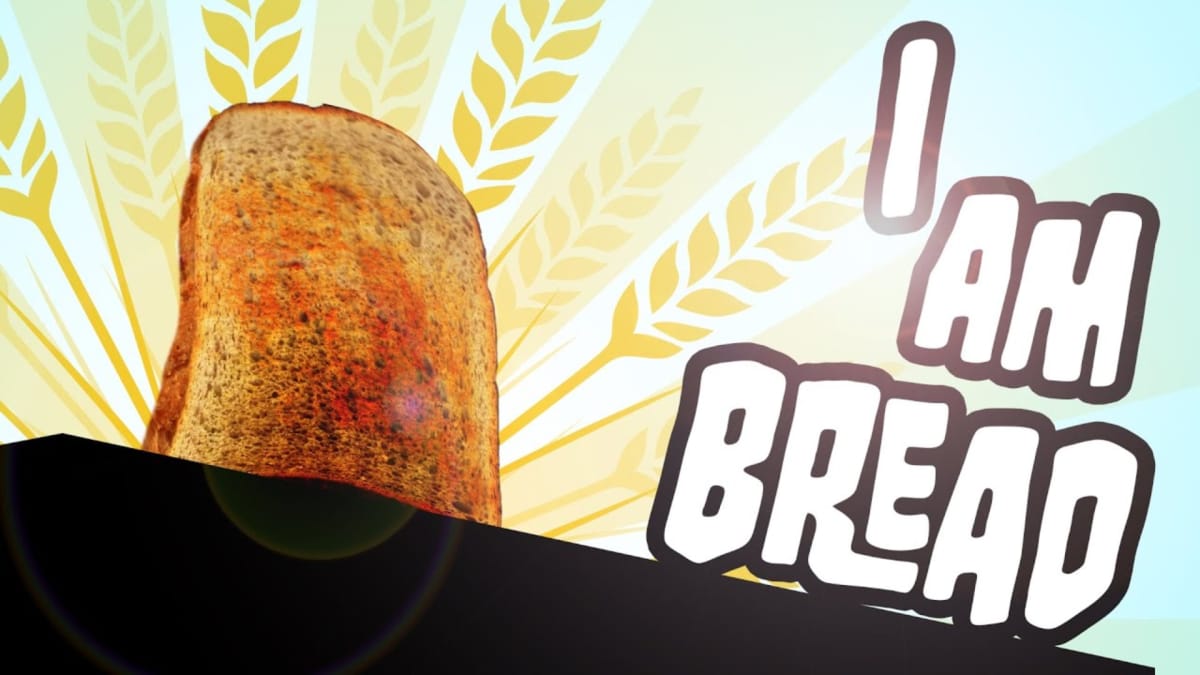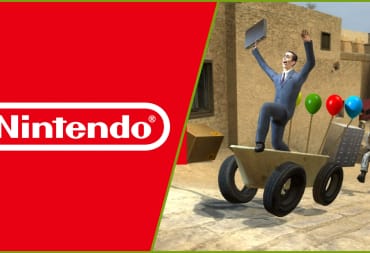I Am Bread is, in many ways, a spiritual successor to Surgeon Simulator, both games created by Bossa Studios. But where Surgeon Simulator created an engaging and interesting experience by combining challenge with complex controls, I Am Bread falls flat, instead making the controls the challenge itself.
I Am Bread - The Start of Fumblecore
As the lead paragraph may have clued you in, it is nearly impossible to even talk about I Am Bread without bringing up its clumsily controlled predecessor, Surgeon Simulator. Without understanding the context of the first game, the second game on its own seems a tad too ridiculous to be given attention. Surgeon Simulator took over the Let's Play scene in 2013, proving some games are just as much fun to watch as to play.
Watching clueless Youtubers fumble with the controls prompted many viewers to buy the game for themselves, sharing their experiences on Youtube as well, which prompted new viewers to buy the game, and the cycle continued, exploding Surgeon Simulator into popularity. It might seem pointless to bring up how the predecessor of a game became successful in the spiritual successor's review, but it is necessary so you can understand why and how I Am Bread falls significantly short where Surgeon Simulator became successful.
I Am Bread - A Fundamental Change
I Am Bread seems to be built from the ground up with its predecessor's success in mind. Now the controls are made to be crazier than before, and even so, moving proves to be a challenge early in the game. Bossa Studios likely intended for this to seem funny to the expected millions of people watching streamers fight the controls, but from a gameplay perspective, it's just annoying and frustrating. Surgeon Simulator also had difficulty, but the difficulty lay in learning the controls and then performing surgery - a task maybe .05% of players even remotely knew how to do.
When you fail in Surgeon Simulator, it's funny because you can sit back and laugh at how terrible a surgeon you are. The same feeling doesn't exist in I Am Bread. When you fail, that's it; you failed. Once the initial silliness of a walking piece of bread wears off (and it wears off very quickly), you are left with frustrating controls that fight you. Surgeon Simulator's controls were clunky but never outright unfair. When you smashed a patient's rib cage or dropped your watch in your chest, it happened because the controls were stiff, but also because you hadn't learned how to work around those stiff controls. And again, the end result of seeing how badly you screwed up major surgery meant that even losing still brought you something, so it became fun to lose.
By contrast, I Am Bread sounds off an annoying alarm as soon as you so much as touch the floor. When you touch the floor your "edibility" begins to lessen, all while a frustrating alarm, the likes of which could only be matched by Baby Mario's crying, plays the whole time. This alone wouldn't be a deal breaker but because the controls are purposefully made to be awful, you are stuck pathetically writhing on the floor, irritated, confused, unsatisfied, and most of all, lacking any sense of responsibility for why you are about to fail.
I Am Bread - Controls
It's these controls that are at the center of the difference between these two games. In Surgeon Simulator, when I stop moving my mouse, my avatar stops moving his arm. The controls can be sloppy, but this one simple rule that he only moves when I move is why it doesn't feel completely unfair to lose in Surgeon Simulator. Conversely, I Am Bread's controls have players move by gripping objects around them, similar to Octodad, like playing Twister with your fingers. The game decides, however, that if the player grabs a certain spot a certain way, the piece of bread will start to fling itself all around, banging its body against the surface it's grabbing on.
Even with the mouse perfectly still and my only input being the single key I press to hold, the bread will shake in the air like there's a tornado roughly 20 feet away, and it's holding on for dear life. Letting go causes my bread to fly across the room in spectacular fashion, only to land on the ground so I can be annoyed by the alarm for 20 seconds as I fruitlessly try to make sense of the controls. This repeatedly happened throughout my time with the game.
These are not fair controls. This is not fun. The game can bring a sense of satisfaction when you manage to complete a level, even if it is frustrating to complete. Finding new ways to make it to the toaster can be rewarding, such as tipping a chair on the first level to create a bridge to the counter. Finding other ways to toast yourself outside of the toaster is a fantastic idea, and I wish the game gave you more chances to do so.
Examples of these workarounds, however, are too few and far between. I Am Bread could roughly be described as a 3D platformer, and finding alternate paths are (forgive the pun) the bread and butter of platformers. The levels themselves are just simple rooms (a kitchen, a bathroom, etc.) but feel like a playground worth exploring for different hijinks. If the controls were better, it could have been fun exploring these levels and seeing all the little details that went into them.
I Am Bread - Narrative?
I am Bread's through-line narrative follows the homeowner, Mr. Murton, as he tries to explain the strange things that happen in his house but is instead labeled a lunatic. The premise is funny, but it never really kept me interested or gave me any desire to see what would happen to Mr. Murton. His problem is sympathetic, but without really learning anything about the guy, it's hard to care about him. Our only other character really is the piece of toast, which gets us about as far as you'd expect. With only four levels released at the time of playing, this reviewer has had his fill. Many of the problems can, and definitely should, be fixed.
The Verdict
The game's system is simply un-fun, its controls are unfair, and its premise, though novel, is unengaging. In their tenacity to create the next Surgeon Simulator, Bossa Studios failed to grasp what made Surgeon Simulator's controls fun in the first place. Without being able to enjoy failing at the game, the controls only leave the player feeling frustrated and cheated, and the game feels broken as a result. Perhaps in future updates, the game will solve these problems, but it only begs the question: if the game needs to be updated to be playable, why release it before it is playable?
TechRaptor reviewed I Am Bread on PC via Steam with a code provided by the developer. It is also available on PS4, and Xbox One. This review was originally published on 01-11-2015. While care has been taken to update the piece to reflect our modern style guidelines, some of the information may be out of date. We've left pieces like this as they were to reflect the original authors' opinions and for historical context.
Review Summary
Have a tip, or want to point out something we missed? Leave a Comment or e-mail us at tips@techraptor.net












